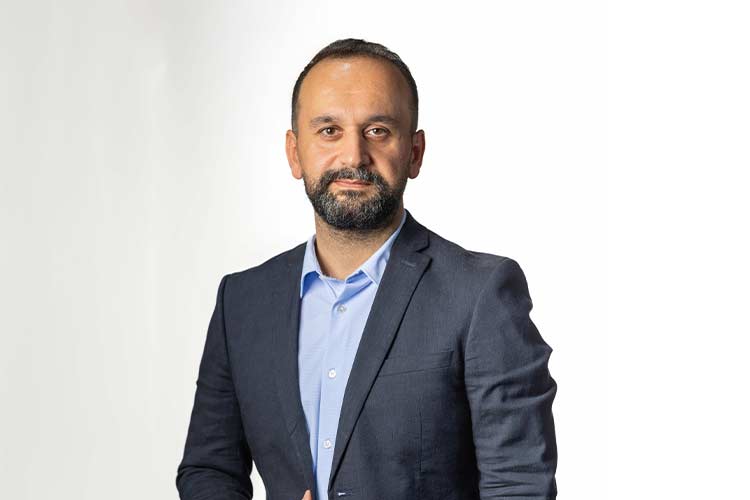
Developers have begun using digital tools to build lasting connections with buyers well after they’ve moved in, says Zafer Akyel, Director, Solutions Engineering & Architecture EMEA of martech platform WebEngage
The real estate industry in the Middle East is changing rapidly. Developers across the region are realising that to stand out, they need to create long-term relationships with buyers. Today, buying a property isn’t just about the sale; it’s the start of a journey that developers want to nurture with their customers. Developers are now investing in long-term engagement strategies that resonate with buyers and keep them connected well after they’ve moved in.
Developers like Sobha Realty are answering that call. Known for its quality-driven developments, Sobha has taken a proactive approach, partnering with retention tool WebEngage to create a customer experience that extends beyond the handover. “When you invest in a home, you’re investing in more than just the property – you’re investing in a relationship with the developer,” says Zafer Akyel, Director, Solutions Engineering & Architecture EMEA at WebEngage. “Developers are realising that staying connected with buyers adds real value, especially when you meet them where they are, through personalised digital engagement.”
Challenges and Opportunities in a New Type of Customer Journey
Of course, building this level of engagement isn’t without its challenges. Real estate sales cycles are long and often complex, requiring developers to keep buyers engaged from the initial interest through to purchase and beyond. Post-sale, the customer journey continues, as new homeowners have ongoing needs – from property management to community engagement. Developers are finding that by addressing these needs with personalised support, they can cultivate lasting loyalty.
Homeowners don’t just want a one-off interaction. They’re looking for ongoing support, and developers who can provide that are the ones building true loyalty, says Zafer Akyel, Director, Solutions Engineering & Architecture EMEA, WebEngage
Sobha and WebEngage’s approach, for instance, includes community engagement tools that allow residents to stay connected, receive timely updates, and engage with their property’s management team seamlessly. “Homeowners don’t just want a one-off interaction,” says Zafer. “They’re looking for ongoing support, and developers who can provide that are the ones building true loyalty.”
The Importance of Personalisation
With younger, digitally savvy buyers entering the real estate market in the Middle East, developers are beginning to adapt in new ways. These buyers bring expectations shaped by the digital age, and personalization is becoming a non-negotiable part of that experience. Sobha, for instance, has turned to WebEngage to design tailored experiences for each buyer, offering individualised updates on projects after they capture new leads; they’re embracing an industry trend that’s reshaping how developers connect with customers at every stage.
“For real estate, personalization means anticipating a customer’s unique needs as they move through their journey,” Zafer says. “It’s about understanding when a buyer might start thinking about upgrades or additional support and reaching out proactively, not reactively. With AI, Sobha can tune into these moments and offer exactly what’s needed – before the customers even realise it themselves.”
As digital expectations evolve, real estate developers in the Middle East are adjusting their approach to customer engagement. Today’s property buyers expect a smooth, connected experience from the moment they show interest through every stage of ownership. For developers like Sobha Realty, this means committing to an omnichannel strategy – communicating with buyers across various platforms, from direct messaging and mobile alerts to online community hubs.
Every Interaction Counts
As the Middle Eastern digital economy is projected to triple by 2030, more developers are likely to follow this path, using Martech, AI, and real-time data insights to redefine their customer relationships. For developers like Sobha, the future of real estate isn’t just about sales – it’s about building trust, adding value, and fostering loyalty through every interaction.
“It’s clear that AI and omnichannel strategies aren’t just add-ons anymore; they’re becoming core to how real estate works,” Zafer adds. “Developers who are willing to embrace these tools will set the benchmark, making real estate a long-term journey that both parties value.”
With this shift toward a customer-first, digitally engaged approach, each stage of the buyer’s journey, from initial inquiry to post-purchase interactions, is being redefined to carry the same weight and value as the initial sale. For buyers, this shift means not only access to timely, relevant information but also a deeper, more connected experience that adapts to their needs as they evolve.
Developers are now positioned as ongoing partners, committed to enhancing every step of ownership through personalised communication and proactive service. As the industry reimagines loyalty through a digital lens, it’s setting the stage for a model where the journey is as meaningful and personalised as the destination itself.





